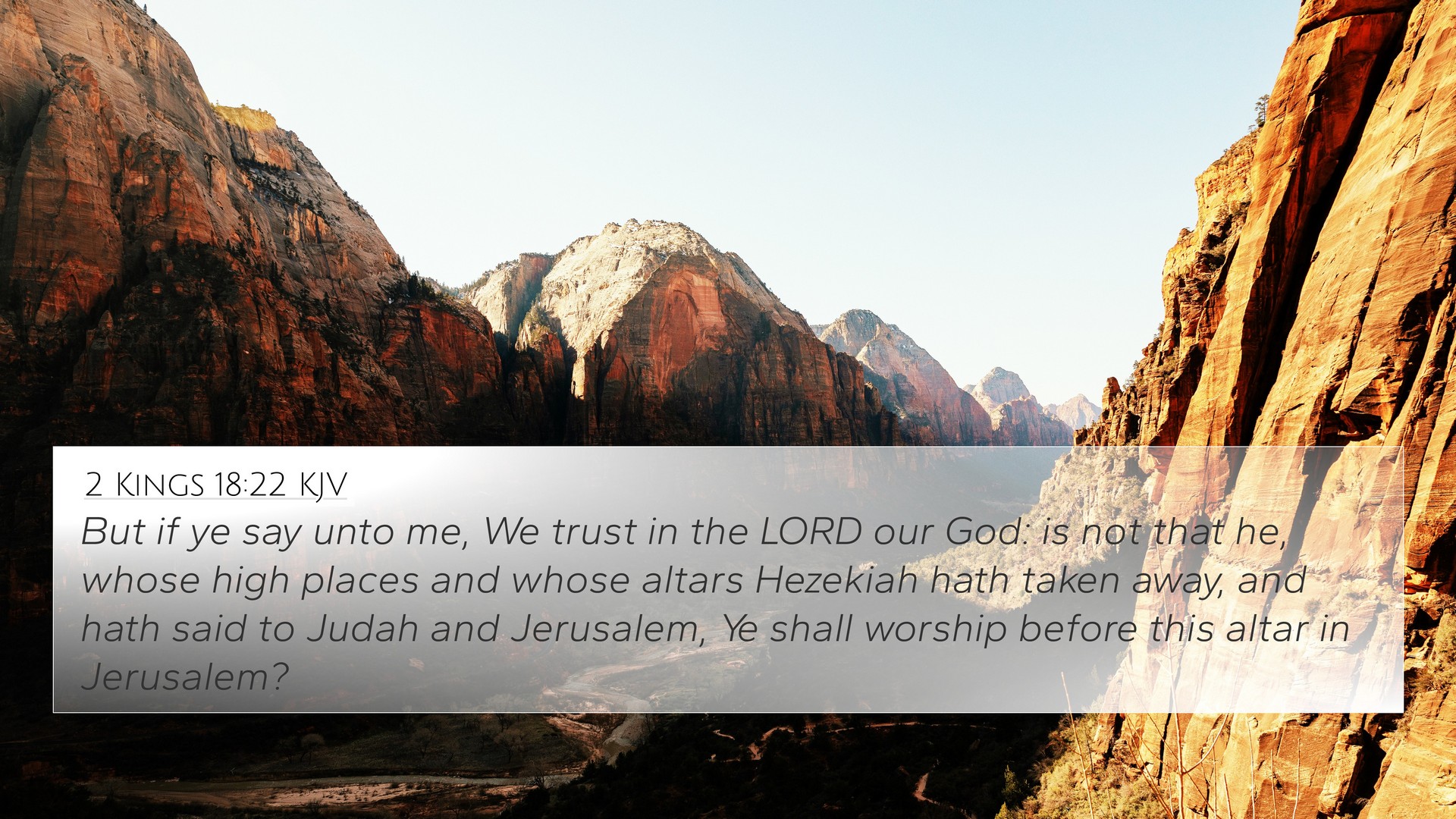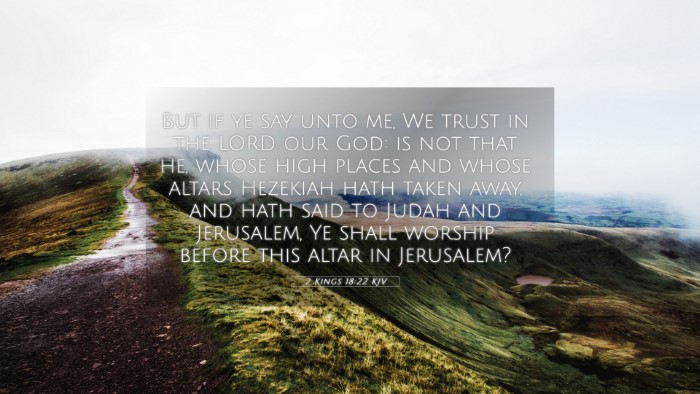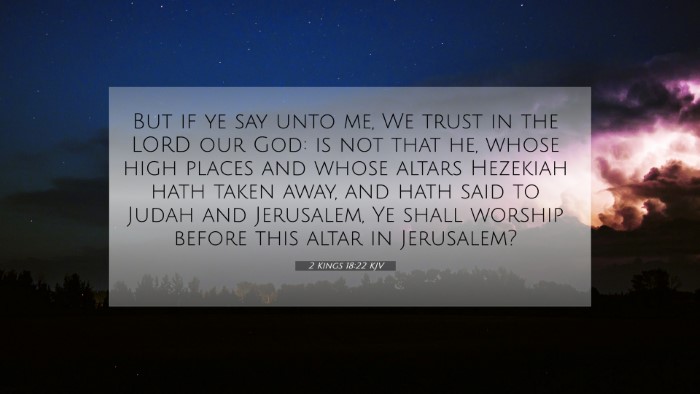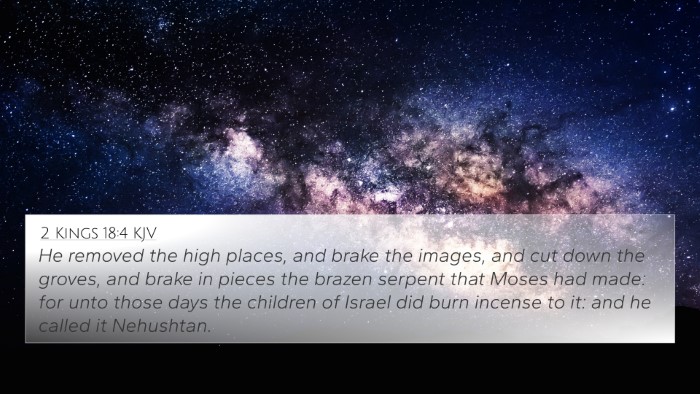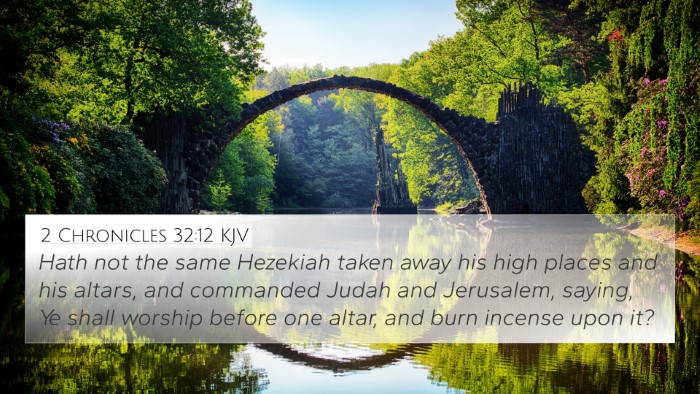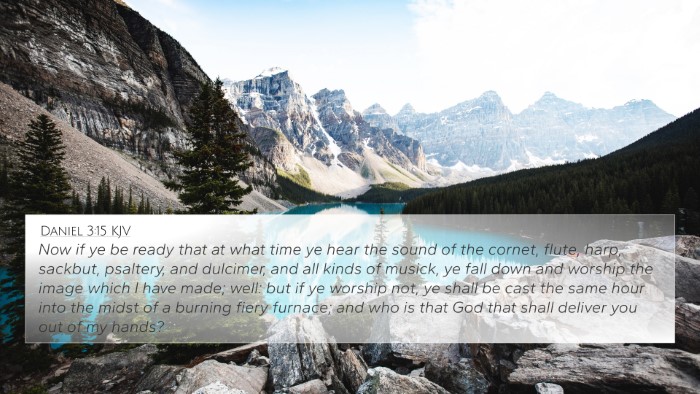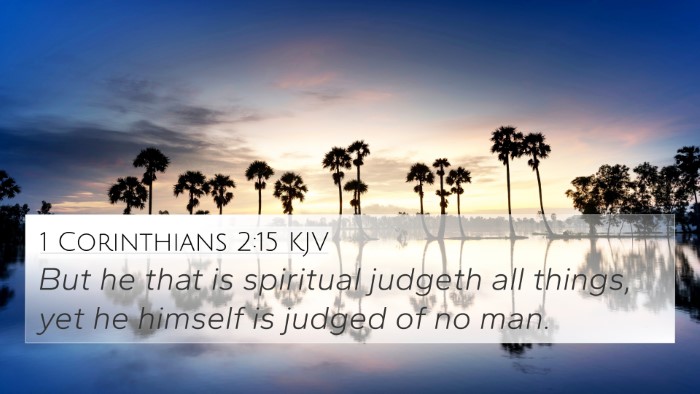Understanding 2 Kings 18:22
2 Kings 18:22 states: "But if you say to me, ‘We trust in the LORD our God,’ is it not he whose high places and altars Hezekiah has removed, saying to Judah and to Jerusalem, ‘You shall worship before this altar in Jerusalem’?" This verse presents a crucial interaction during the reign of King Hezekiah of Judah, where the Assyrian envoys challenge the faith of Hezekiah and the people of Judah.
Summary of Insights
The following commentary insights provide a deep understanding of this verse:
- Matthew Henry's Commentary: Henry highlights the challenge posed by the Assyrians as an attempt to undermine the faith of Judah. The reference to Hezekiah's reforms, particularly the removal of high places, symbolizes a commitment to worship only at the Temple in Jerusalem, reflecting a call to concentrate their faith in God rather than in various localized shrines.
- Albert Barnes' Notes: Barnes emphasizes the significance of the assertion made by the Assyrians regarding the actions of Hezekiah. The verse serves to question the legitimacy of Hezekiah’s reforms, showcasing a tension between faithfulness to God's commands and the prevailing views of surrounding nations. This passage illustrates the challenges believers face when their faith is questioned.
- Adam Clarke's Commentary: Clarke notes that the act of removing high places was symbolic of Hezekiah's intention to centralize worship and align it with divine instruction. He discusses the broader implications of cross-referencing this verse with the covenantal obligations laid out in prior texts, reinforcing the importance of pure worship in the eyes of God.
Bible Cross-References
This verse is interlinked with several other passages in the Bible that enhance its meaning:
- 2 Chronicles 30:14 - Hezekiah’s reforms and the calling of the people to worship at the Temple are consolidated.
- 2 Kings 18:4 - This verse discusses Hezekiah's reforms directly in the context of destroying the high places.
- Isaiah 36:7 - Isaiah records a similar narrative where the Assyrian king questions the trust in God of those in Jerusalem.
- Jeremiah 7:12-14 - References the worship at Shiloh, reminding of God's previous judgments based on disobedience.
- Deuteronomy 12:5-6 - Emphasizes the need for Israelites to worship at the central sanctuary, foreshadowing Hezekiah’s reforms.
- Psalms 78:68-69 - Discussed about God's choice of Zion, linking themes of chosen worship locations.
- Exodus 20:24 - Discusses the importance of altar worship and how it connects to the call for unified worship by Hezekiah.
Thematic Bible Verse Connections
Thematic connections can be drawn from this verse that relate to issues of faith, obedience, and the consequences of trusting in God versus the idols of other nations. The following themes emerge:
- Faith vs. Idolatry: The verse showcases the tension between true worship and the idolatrous practices that Hezekiah sought to eliminate.
- Centralization of Worship: Hezekiah’s actions prompted a shift from polytheistic practices to a focus on Yahweh worship in Jerusalem.
- Divine Authority: The challenge to Hezekiah's reforms poses questions about who has the ultimate authority in matters of worship and obedience to God's directives.
Cross-Referencing Biblical Texts
The interconnectedness of biblical narratives can be explored through a detailed analysis of cross-references. This practice not only aids in understanding a specific verse but also reveals the overarching themes presented throughout Scripture. Tools for cross-referencing are essential for a holistic understanding:
- Utilize a Bible concordance to locate thematic links.
- Refer to a Bible cross-reference guide for in-depth comparisons and connections.
- Application of Cross-reference Bible study methods helps identify recurring motifs.
Conclusion
In analyzing 2 Kings 18:22, it is evident that the verse serves as a critical point in a greater examination of faith, reform, and the dynamics between divine fidelity and worldly pressures. By utilizing cross-references, one can explore the connections between this verse and others, supporting a deeper understanding of the biblical narrative as a unified whole.
